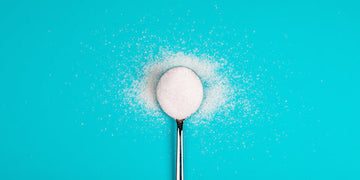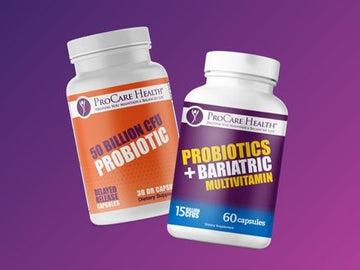by Anthony Benjamin on Oct 12, 2022

A Closer Look at Artificial Sweeteners
While junk food may be the first thing that comes to mind when you hear about sugar in your
diet, it’s not entirely fair. There’s actually plenty of sugar in healthy foods, too. Think
about fructose, glucose, and lactose, which are natural sugars found in fruits and dairy
products. That’s why people look to artificial sweeteners as an alternative. However, those
who are on a bariatric diet should be cautious. Continue reading to learn more about
artificial sweeteners.
What are Artificial Sweeteners?
Also known as sugar substitutes, artificial sweeteners are taste-impacting chemicals that can be included in unsweet foods or beverages. You might be used to seeing them labeled as “sugar-free” products or in the small pink, yellow, and blue packets at your favorite restaurant.
Benefits and Side Effects of Artificial Sweeteners
Artificial sweeteners work because they are able to trick the brain and taste buds into thinking that you are consuming sugar. Unlike sugar, the body is unable to break down most of these chemicals into calories. This would mean weight loss is possible when using the right artificial sweeteners as replacements. At the same time, they can negatively impact healthy gut microbiota, potentially leading to diabetes. Aspartame, specifically, is associated with life-threatening conditions such as seizures, brain cancer, and depression.
Plant-Based Sweeteners
There are also plant-based sweeteners available like stevia extract. This sugar substitute comes from the stevia plant, which is found in South America. It can be up to 200 times sweeter than sugar and also does not produce additional calories in foods or beverages. An important note is that stevia can cause blood pressure reduction. Those who have low blood pressure or take blood pressure medication should take caution when using the sweetener.
Sugar Alcohols
Other types of sugars that you may encounter are sugar alcohols. These sweet carbohydrates are a combination of sugar and alcohol molecules (minus the ethanol). Sugar alcohols are either found in fruits and vegetables or are processed. Recognizable ingredients in products include erythritol, maltitol, and sorbitol – to name a few.
Read the Label
Bariatric patients should still pay attention to the overall amount of calories they consume. While artificial sweeteners may have zero calories, the foods and beverages they make sweeter still do. That’s why it’s crucial to thoroughly read all labels before buying. You also want to make sure there are no ingredients that will affect your current prescriptions.
Sugar and Dumping Syndrome
Patients who have undergone gastric bypass or other similar bariatric operations need to change their diets to avoid issues such as dumping syndrome. This is a group of symptoms, like diarrhea and nausea, that can occur following a meal with too many sugars. You might also experience these symptoms after eating dairy, fats, or fried foods. Essentially, digestion is forced as food is quickly dumped from the stomach to the small intestine. The best thing you can do to avoid these kinds of issues pertaining to sugar or sugar substitutes is to cut them from your diet.
How ProCare Health Can Help
If you are really looking to improve your health following bariatric surgery, ProCare Health offers life-changing supplements that your body craves. Our once-daily multivitamin is available as a chewable or capsule, and you can even try a free sample before purchasing. Consider our calcium soft chews as well – with flavors including cinnamon roll, sea salted caramel, and dinner mint. These have no artificial sweeteners, sugar alcohols, or artificial additives, and are gluten-free, kosher, and non-GMO.
If you require additional support, call us at (877) 822-5808 or visit us online at procarenow.com.

How the Low FODMAP Diet Is Good for Gut Health

What Is Food Noise?


